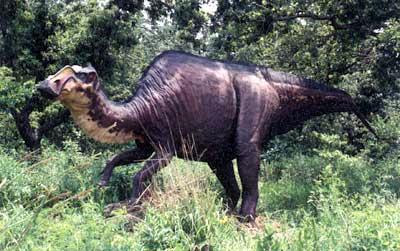Note: Unless otherwise noted, definitions are courtesy of dictionary.die.net, an Internet dictionary in the public domain.
G
Gaia--the planet earth, personified, often as a mother (the author).
Geller, Uri--a supposed psychic with telekinetic powers; famous for bending spoons with nothing more, allegedly, than his mind (the author).
Ghost--a spirit of the dead which sometimes are said to haunt the living (the author).
Global warming--the doctrine that the earth’s climate is warming, partially as a result of human activities and pollutants (the author).
Goatsucker, Puerto Rico--a mysterious animal in Puerto Rico, also known as the chupacabra, said to bite the necks of goats (and other animals) and suck their blood (the author).

God
God--in Christianity, Judaism, Muslim, and other faiths, the supreme being (the author).
Griffin--winged monster with an eagle-like head and body of a lion.Gurdjieff, G. I.--a mystic; he established The Institute for the Harmonious Development of Man (presumably, women aren’t included) in Russia), based on lessons he’d learned from other mystics while he was traveling in central Asia (the author).
Guillotining, and life after death--the theory that the brain remains conscious for one or more moments after it has been severed from the body by a falling guillotine blade (the author).
H
Hallucination--illusory perception; a common symptom of severe mental disorder.
Healing, faith--healing of blindness, deafness, disease, mental illness, demonic possession, and other physical, mental, and spiritual conditions by faith in God’s ability and desire to deliver or heal one from these conditions (the author).
Heaven--in Christianity, the abode of the souls redeemed by Christ (the author).
Hecate--the Greek goddess of witchcraft (the author).
Hel--in Norse mythology, the name of both the underworld to which those who were not selected as residents of Asgard lived after death and the name of the goddess who ruled it (the author).
Hell--in Christianity, the abode of the damned; named for the Norse underworld, Hel (the author).
Hill, Betty and Barney--a couple who, under hypnosis, claimed that they were abducted by extraterrestrial aliens and subjected to bizarre medical experiments and tests (the author).
Hoax--a fraud perpetuated upon the stupid, naïve, and desperate by charlatans, some of whom claim to possess paranormal or supernatural powers and abilities (the author).

Home, levitating
Home, Daniel--a Scottish spiritualist and medium who claimed to be able to levitate, to communicate with the dead, and to cause rapping sounds by the power of his mind alone; Sir Arthur Conan Doyle, author of the Sherlock Holmes stories, was one of his many supporters (the author).
Homeopathy--a method of treating disease with small amounts of remedies that, in large amounts in healthy people, produce symptoms similar to those being treated.
Hot reading--fortune telling that involves the surreptitious solicitation of personal information related to the medium’s or psychic’s client or an audience which is included in the fortune subsequently told (the author).
Houris--Muslim virgins waiting to serve faithful male adherents of the faith, especially martyrs (the author).
Houses, haunted--residences (and, sometimes, commercial properties) that are said to be haunted by ghosts, demons, or other paranormal or supernatural entities or forces (the author).
Houston, Jean and the Mystery School--a New Age self-help program that fosters self-development and social progress (the author).
Howe, Linda Moulton--an investigative journalist who writes what crtics characterize as sensational articles and books and produces lurid documentaries, and films about UFO’s and related topics (the author).
Hubbard, L. Ron--science fiction author and founder of Scientology (the author).
Hundredth monkey phenomenon-”a sudden spontaneous and mysterious leap of consciousness achieved when an allegedly "critical mass" point is reached” (The Skeptic’s Dictionary).
Hybrids, alien program to breed--an alleged program by extraterrestrial aliens and/or the United States government to breed hybrid alien-humans, possibly to fill roles of authority within the world’s governments (the author).
Hypersensory perception (HSP)--intuition, such as may be displayed in interpreting body language (The Skeptic’s Dictionary).
Hypnagogic state--the “state between being awake and falling asleep. For some people, this is a time of visual and auditory hallucination” and may explain some accounts of ghosts, demons, UFO abductions, and the like (The Skeptic’s Dictionary).
Hypnopompic state--“the transition state of semi-consciousness between sleeping and waking. For some people, this is a time of visual and auditory hallucination” and may explain some accounts of ghosts, demons, UFO abductions, and the like (The Skeptic’s Dictionary).
Hypnosis--a state that resembles sleep but that is induced by suggestion.
Hysteria--neurotic disorder characterized by violent emotional outbreaks and disturbances of sensory and motor functions.
Hysterio-epilepsy--“an alleged disease discovered by Dr. Jean-Martin Charcot (1825-1893), one of the founders of modern neurology” (The Skeptic’s Dictionary).
I Ching
I Ching--a set of principles and symbols by the use of which people seek to balance opposite forces and find order in seemingly random incidents (the author).
Illuminati--literally, “enlightened ones”; a secret society often identified as participants in an international conspiracy to rule the world, openly or secretly (the author).
Incantation--a chant, sometimes in verse, by which sorcerers and witches sometimes cast spells (the author).
Incorruptibility of sacred bodies--bodies of saints that remain perfectly preserved, with no evidence of decay, for prolonged periods after their deaths and entombment or burial (the author).
Indian rope trick (levitation)--a magic trick in which an Indian fakir seems to climb a levitating rope (the author).
Indigo children--children of a higher degree of evolution than normal children and who are said to have paranormal powers, such as clairvoyance; they are identifiable by the indigo aura that surrounds them (the author).
Infrasound--sound below the threshold of human hearing (the author).
Intelligent design--the doctrine that the order and structure of the universe presupposes intelligent design; the basis of the argument from design, or the teleological argument (the author).

 Dinosaur
Dinosaur







